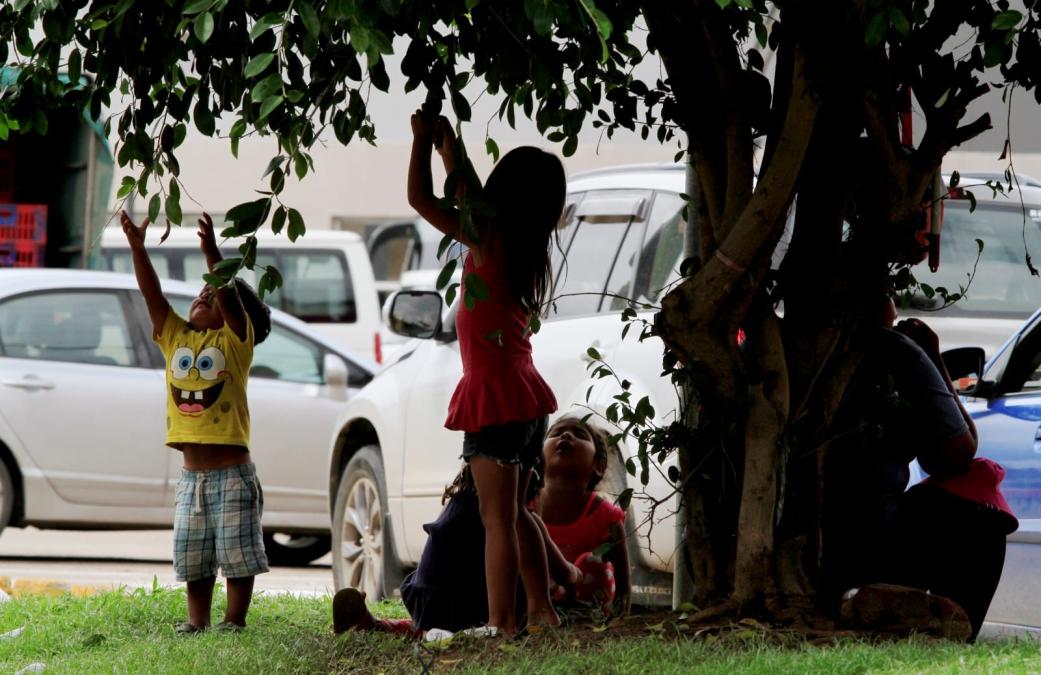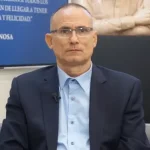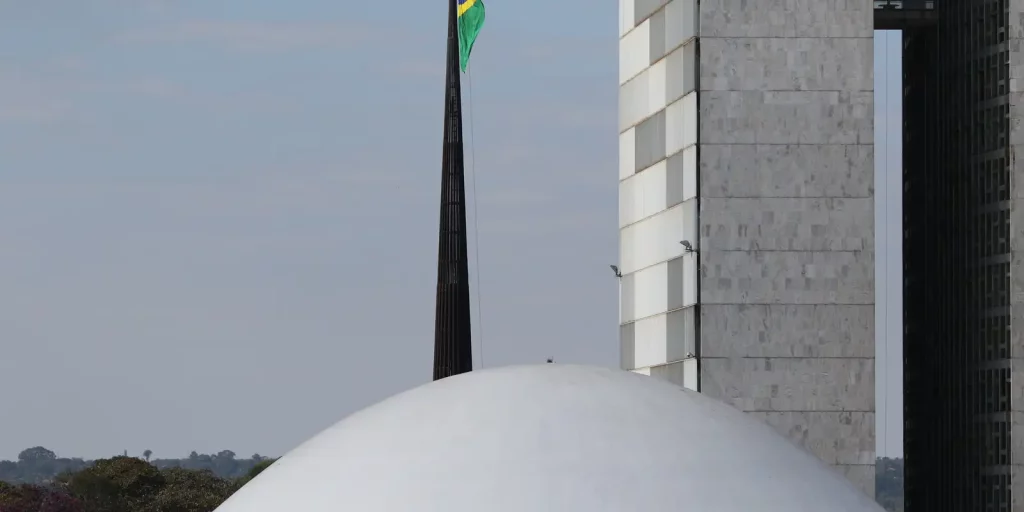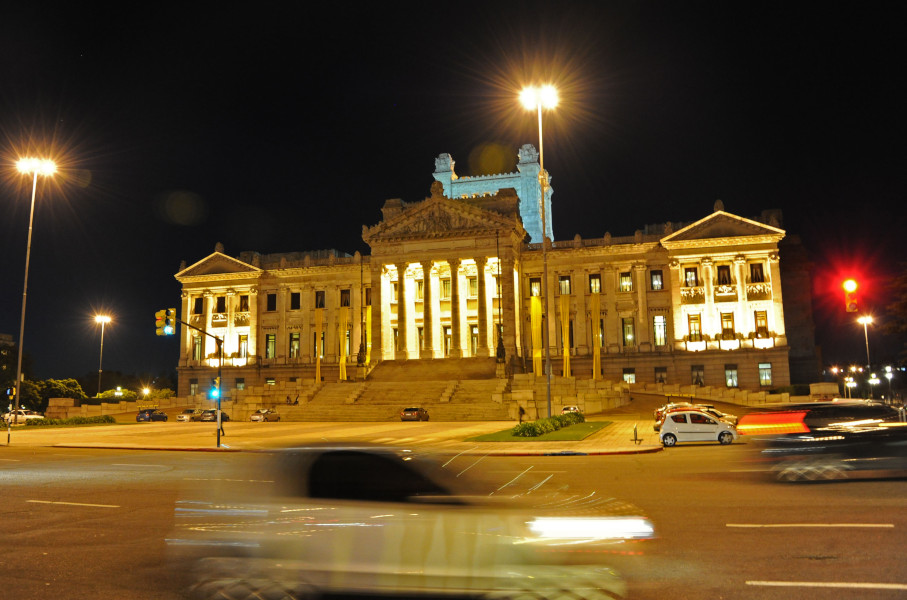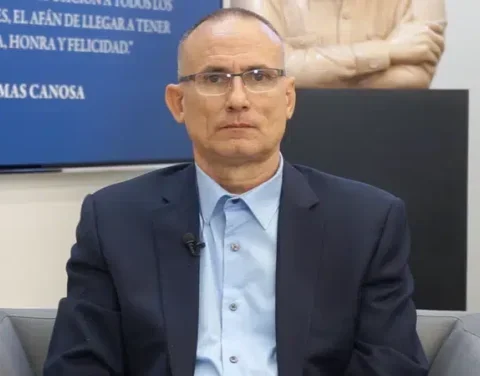While traffic does not stop in the main roads of the city, some children take advantage of the change of light from the traffic light to extend their hand by coins. Instead of being in a classroom learning to read and write, Many of them are exposed in congested roundabouts and streets, in the rain, the sun and the constant noise of the motorized.
The little ones remain subject to the body of their parents, without the possibility of running, playing or simply being children like those of their age. Others, a little bigger, manage to offer sweets or ask for help from drivers. A few meters away, who accompanies themñan observe from the shadow of a tree, while the city continues its course, foreign to the daily drama that is in view of all.
They are children who live virtually in the streets, exposed to all kinds of danger and disadvantage if they try to access rights. Even to the most basic, such as education, protection and health.
Poverty, aggravated by the increase in the cost of living, pushes more and more families to look for something to eat. The most vulnerable in this daily struggle are children. José Luis and Sonia, along with his five children, between 1 and 9 years, are every day in the roundabout of the fourth ring and Germany Avenue, asking for coins to fill the stomach. They live in the Villa First of May and move to the other end of the city to settle in the Rotonda, where there are also people in street and addicts. The children remain next to them all day, none goes to school.
One of them became ill of chickenpox and the other does not stop coughing, but only the one with grains in the skin received medical attention. “We need mats and chompas. My father lent us a quilt because we don’t have what to shelter,” says Sonia and José Luis justifies that they are forced to load with their children because they have nowhere to leave them.
Flora Choque lives in the Juancho neighborhood, by Normandía, and moves to the fourth and radio 26 Radial roundabout to sell pass ankallas. She is a single mother and has two children. The 9 -year -old major, lives with the sequels of a neurological disease and accompanies her while she works. His other son goes to school in the afternoon and in the morning help the street sale.
A few steps from El Arenal Park, José Luis Lazo and his mother They make a living selling orange juice in a small position. Next to them is José Luis’s niece, a six -year -old girl who, given the impossibility of her father to take care of her, remains all day with them. The little girl does not attend school.
Immigrants
In recent years the arrival of immigrants who leave their country increased due to the crisis situation it is going through. They move in different countries in Latin America and in Bolivia it is common to see them begging in traffic lights. To many, they say, They have trouble getting work due to problems with their papers.
In the second ring and Avenida San Aurelio, Iván, who arrived from Peru 12 years ago, sells sweets, along with two of his daughters. He points out that he does not find a job. His wife takes care of the little ones. “You have toGar five monthly payments at school, so I work as I can, ”he says.
There are passers -by who help children and people with coins, and they point out that it is urgent that the authorities apply policies to get it out of the streets.
Violated rights
The judge of childhood and adolescence, Shirley Becerra Vaca, remember that childhood protection is fully backed by the Political Constitution of the State and the Code of Children and Adolescents, which recognizes girls, boys and adolescents as subjects of rights; Therefore, they enjoy all guarantees, and it is the duty of the State, at all levels, ensure the full exercise of those rights.
However, he warns that when minors are in a street situation or in vulnerable conditions, and the State does not act to restore their rights, a clear violation of these provisions is incurred.
“The rights to education, health and housing are being violated in EScough children. The State has the obligation to intervene and restore them, ”he says.
There are also the responsibilities and obligations of parents, ranging from affection and care to sustenance, guardianship, education and others. The norm establishes sanctions in case of omission or breach, which can range from the partial suspension of parental rights until its extinction, in addition to criminal proceedings in case of violence or abandonment.
“We work with several organizations so that there are fewer children in the streets, more children in their homes and more united families,” he adds.
Indelible marks
On the other hand, the psychologist María José Aguilera Arredondo points out that these children not only face basic and emotional deficiencies, but also remain with brands for a lifetime. “The lack of a safe and stable family environment can generate significant affective lack, making emotional management and the construction of healthy self -esteem difficult,” he says.
It also ensures that they can have problems in the development of Hsocial ability, such as effective communication and conflict resolution.
He points out that, despite the fact that policies are missing to address this problem, there are support spaces, such as the listening house, inaugurated by the Government in September 2024. “They seek to rehabilitate them through comprehensive intervention,” says Aguilera. The Foundation heating Hearts is another that helps boys in street, complements the professional.
